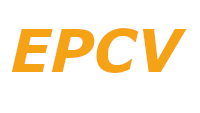Disaster descriptions do not capture many mental health and well-being impacts.
fonte: Psichology Today
Autore: Ilan Kelman, Ph.D., is Professor of Disasters and Health at University College London, England and a Professor II at the University of Agder, Kristiansand, Norway.
Key points
- “Natural disaster,” “black swan,” and “disaster event” are misnomers. These phrases represent neither disaster experiences nor disaster causes.
- Disasters are caused by people who have power, resources, and choices creating vulnerability for others.
- All disasters are slow-onset because they come from vulnerability.
What is a disaster? No one really knows. This conclusion emerges despite decades of contemporary disaster science following centuries of people aiming to explain how and why disasters happen. Commonly invoked explanations are deities and nature, as in “Act of God” and “natural disaster.”
Neither phrase satisfies a scientific perspective. Dictionary, legislative, and glossary definitions do not always do justice to people’s actual disaster experiences, especially the psychological impacts.
Blaming an uncontrollable force, accepting a higher purpose, or raging at the natural world might help the mental health and well-being of people suffering disasters. Or it might not due to the hopelessness and powerlessness of assuming that nothing could ever be done. This blame significantly diverges from what we know about what could and should be done, the causes of disasters, and how we could support mental health and well-being by tackling them.
It makes us no wiser regarding the definition. So what is a disaster?
Rather than the standard sardonicism of “I know it when I see it,” it might be more instructive to seek a process of elimination. Accept what disasters are not, examine what does not cause them, for narrowing down what disasters might be compared to non-disasters. This statement also assumes that such a dichotomy is realistic!
Irrespective, could we agree on what disasters are not?
Aside from various perspectives of supernatural beings and their motivations in harming us, decades of science explain that the phrase “natural disaster” is a misnomer and should not be used. Fundamentally, disasters are caused by vulnerability, the political process of denying people the resources, opportunities, and choices to improve their situations in dealing with difficult circumstances.
Disasters emerge from choice, and from lack of choice, of our living conditions, places of abode, livelihoods, and abilities to deal with nature’s phenomena, such as tornadoes and earthquakes. A tornado or earthquake cannot be a disaster since some people, infrastructure, and livelihoods manage without harm, and some do not. The environment does not make these choices. People with power do, meaning that disasters do not come from nature even though the tornado and earthquakes do.
Not being “natural” disasters, the deaths, damage, and disruption are simply disasters. They occur because some people and institutions make decisions that harm others and, ultimately, everyone, including themselves.

Is relative poverty a disaster or a disaster creator? Source: Ilan Kelman
These decisions happen over the long term. It is hard to build overnight a city that collapses in an earthquake or is flattened by a tornado.
Poverty, inequity, inequality, marginalisation, oppression, and other everyday social ills take extensive and active effort to build and maintain.
As a long-term process, they lead to vulnerability which causes disasters, so a disaster is also a long-term process. This is people’s lived experience, influencing their mental health and well-being, especially amid a disaster, knowing that those most affected could often have done the least to avoid it.
Even when an environmental phenomenon manifests quickly, such as a tornado or earthquake, the disaster is not rapid-onset. All disasters are slow-onset because they come from vulnerability.
Disasters are processes, just like vulnerabilities. The phrase “disaster event” is as bad as “natural disaster.” Disasters are not events.
And disaster research tells us exactly how and why they happen. We certainly do not understand all of nature. Nature brings surprises and unknowns—yet nature does not cause disasters. We know where disasters will happen, how they happen, and why they happen. Or, at least, we could know.
Just examine the society, history, and culture—basically the people, livelihoods, and governance—to identify vulnerabilities and absences. Then, we will know potential disaster scenarios, so there should be no disaster surprises. As such, the phrase “black swan” is also a misnomer to be avoided.
Foundational publications in disaster research explain why so many words do not describe disasters: unpredictable, unexpected, unpreventable, unscheduled, uncertain, unusual, and unstoppable. Disasters are not characterised by this “un”-ness because “un”-ing them negates everything we have long understood about their causes.
With some exceptions. A clear one is that disasters are inevitably unsurprising—except to those who were not given any possibilities for reducing surprise. This element of surprise detrimentally impacts people’s mental health and well-being since they had little expectation of calamity and few options to avert it themselves. Disasters should be unsurprising, but those with power prefer to make them surprising.
Ultimately, a disaster is people acting and failing to act in order to create and perpetuate conditions leading to harm.
articolo: https://www.psychologytoday.com/us/blog/disaster-choice/202204/how-are-disasters-defined#:~:text=Come%20vengono%20definiti,Riferimenti
References
Aronsson-Storrier, M. and R. Dahlberg (eds.). 2022. Defining Disaster: Disciplines and Domains. Edward Elgar, Cheltenham, U.K.
Hewitt, K. (ed.). 1983. Interpretations of Calamity. Allen and Unwin, London, U.K.
Perry, R. and E.L. Quarantelli. 2005. What is a disaster? Xlibris, New York, U.S.A.
Quarantelli, E.L. 1998. What is a disaster? Routledge, New York, U.S.A.


